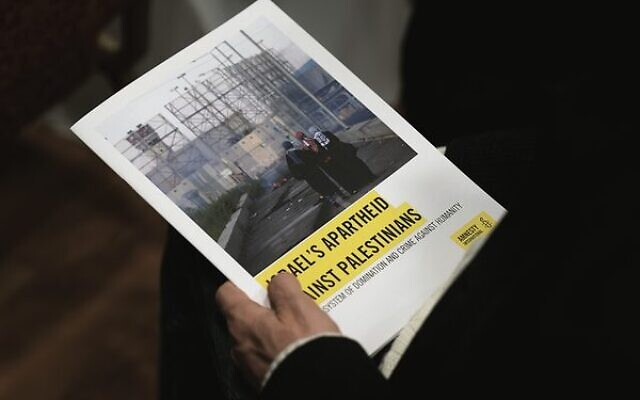It’s set to be a challenging year on campus
'We're working tirelessly to support Jewish students'
2022 is set to be an amazing year with the return to campus. For many, this will be the first time having a fully in-person semester. This is extremely exciting and the Australasian Union of Jewish Students (AUJS) cannot wait to welcome you to campus this year. The ability to be in-person again will mean that we will be able to host more events and it is easier to connect at programs.
Some students will continue with learning remotely and AUJS will continue to create innovative online programs and a space for Jewish students to meet.
AUJS will be able to foster an environment where students are able to meet new people and be provided with a range of amazing opportunities.
While the beginning of university is exciting, it does not come without its challenges, whether it is dealing with issues of antisemitism or if being Jewish is making it difficult to study. AUJS is working tirelessly behind the scenes to support Jewish students.
As we saw last year in May, issues that affect the wider and global population are often highlighted on university campuses, with Jewish students often taking the brunt of these issues. We are here to support students when this happens.
The start of this year has been difficult with the boycott of the Sydney Festival, comments made by Whoopi Goldberg and the Amnesty International report that was released last week. All these matters are not directly linked to student life; however, we have seen the drastic effects both the events and report have had on students. From wanting to understand these issues for themselves to feeling like we, as Jewish students, must be the spokespersons when issues like these come about. AUJS will continue to educate students and provide support when issues arise.
Just last week, the University of Sydney’s Student Representative Council released a motion in support of the boycott of the Sydney Festival. It stated that “any corporation that sides with Israel is no friend of students”.
Firstly, this statement excludes Jewish students from the wider student population and their goals. Additionally, the statement ostracises students with a connection to Israel by excluding them from their definition of students. Unfortunately, we might see events like this one becoming the norm, with the Boycott, Divestment and Sanctions movement growing in Australia. While these events were terribly difficult on students, AUJS supported them by providing resources and by being a place where they can discuss these issues.
So far, we have not seen the direct impact of the Amnesty report on the student body. However, a common topic that is often spoken about on university campuses is interlinked with this report – the demonisation of the only Jewish State.
Furthermore, a common theme that is brought up is that Israel is deemed an apartheid state. While this is not true, the fact that Amnesty holds credibility on university campuses means that students who have come to this conclusion will be able to quote a prominent human rights organisation, regardless of how fictitious they are. Moreover, lecturers and tutors continue to reference Amnesty as a credible source, which can mean that students might feel stuck when issues in the Middle East are brought up. If this happens, students can be left assured that AUJS will be there to help them fight with facts.
We expect to see that there may be issues raised with the working definition of antisemitism as outlined by the International Holocaust Remembrance Alliance (IHRA). As we saw last year, organisations outwardly come out and criticised the definition, stating that it impinges upon free speech. University students have started groups labelling themselves as ‘Students Against IHRA’. The definition is very important to Jewish students because it gives them the safety and security to call out what is discriminatory or not. AUJS will continue its hard work in working with administrative bodies and student associations to adopt this definition.
Another issue that we will continue to see is the scheduling of university classes, which can make it difficult for Jewish students who observe Shabbat and the chagim (festivals). While some universities do make it easy for Jewish students to miss class or submit assignments late, there is a constant lack of consideration when it comes to timetabling generally. Fortunately, we have seen some progress in this area with prominent universities being very receptive to these issues and looking for solutions.
I have highlighted multiple challenges that are likely to affect Jewish students on campus this year. However, it is important to note that AUJS as the sole representative body for Jewish students on campus will continue to work around the clock to support Jewish students, whether students need help dealing with an antisemitic incident or need AUJS to provide supporting documentation to receive special consideration for missing a class or submitting an assignment late because of Shabbat or one of the chagim.
AUJS is here to support students, so please encourage university students to sign up as a member so that AUJS can support them.
Natalie Gunn is president of AUJS.


comments